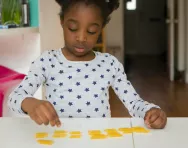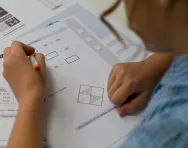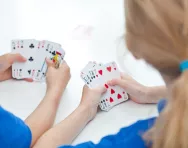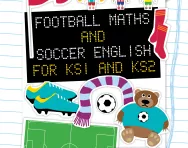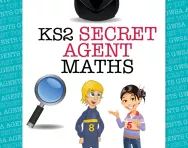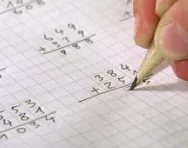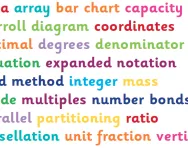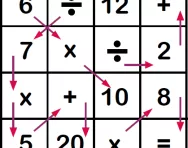Important update from TheSchoolRun
For the past 13 years, TheSchoolRun has been run by a small team of mums working from home, dedicated to providing quality educational resources to primary school parents. Unfortunately, rising supplier costs and falling revenue have made it impossible for us to continue operating, and we’ve had to make the difficult decision to close. The good news: We’ve arranged for another educational provider to take over many of our resources. These will be hosted on a new portal, where the content will be updated and expanded to support your child’s learning.
What this means for subscribers:
- Your subscription is still active, and for now, you can keep using the website as normal — just log in with your usual details to access all our articles and resources*.
- In a few months, all resources will move to the new portal. You’ll continue to have access there until your subscription ends. We’ll send you full details nearer the time.
- As a thank you for your support, we’ll also be sending you 16 primary school eBooks (worth £108.84) to download and keep.
A few changes to be aware of:
- The Learning Journey weekly email has ended, but your child’s plan will still be updated on your dashboard each Monday. Just log in to see the recommended worksheets.
- The 11+ weekly emails have now ended. We sent you all the remaining emails in the series at the end of March — please check your inbox (and spam folder) if you haven’t seen them. You can also follow the full programme here: 11+ Learning Journey.
If you have any questions, please contact us at [email protected]. Thank you for being part of our journey it’s been a privilege to support your family’s learning.
*If you need to reset your password, it will still work as usual. Please check your spam folder if the reset email doesn’t appear in your inbox.
Everyday ways to make maths fun
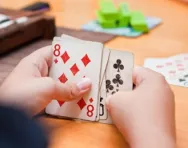
You've read to your child regularly since they were a baby, encouraged them to draw and write their letters and drill them on their spelling regularly.
When it comes to maths, though, you're out of ideas. Is it possible to make maths learning part of everyday life? Yes – and thankfully you don't have to be a mathematician (or even particularly good at maths!) to get started. It's not all about helping with maths homework, either.
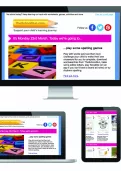
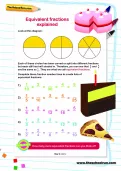
Boost Your Child's English & Maths!
- Weekly programme for each school year
- Worksheets sent direct to your inbox
- Keeps your child's learning on track
Make maths real at home...
Once you get started you'll find loads of ways to bring maths to life in the house. For example, why not try:
- playing games such as Snap, cards, lotto, bingo, pairs and simple board games with your child. Try creating your own games, too, or ask your child to have a go.
- singing number songs and rhymes.
- sorting, counting, matching and comparing anything and everything together.
- encouraging your child to help you with simple household tasks, such as laying the table. Ask them how many plates or chairs will be needed. If you are baking or cooking together, let them help you with weighing or counting out spoonfuls. Use fractions, too, dividing things into halves and quarters. A standard six, nine, or 12 bun tin offers a wonderful opportunity to practise addition and/or multiplication skills.
- reading the TV guide together and planning family viewing.
- encouraging them to look at the clock regularly in order to relate times to familiar routines and activities.
... and out and about
- When you go shopping, point out prices to your child. Let them pay for small items, showing them which coins they are using. Encourage them to work out amounts. Do they think change will be given? How much?
- When you’re going on a familiar journey, ask them to lead you, talking about the directions you are taking, e.g. left, right, and straight on. Direct their attention to road signs (words and arrows) – motorway ones are brilliant because they’re so big and are repeated. Also try spotting properties of bus and number plates.
- Read bus/train timetables together.
- Use appropriate language to describe positions, sizes and measurements – over/under, in/on, in front/behind, up/down, taller/shorter, fatter/thinner, heavier/lighter, full/empty.
- Try to make the learning of number facts fun, e.g. using times table song tapes in the car.
It's also worth keeping an eye out for maths-related activities at museums and local venues. We love Maths on Toast, who organise fun maths community events for families.
Consult the expert
Worried that maths isn't exactly your strength? TheSchoolRun has loads of advice on increasing your understanding of the subject and how it is taught in school today. You'll find detailed explanations of primary-school maths terminology in our maths glossary for parents, or look through our year-by-year guides to what your child learns in maths (use the orange drop-down mega-menu at the top of the website pages and click on School Year) to be prepared for questions about relevant topics.
You can also ask your child’s teacher for a list of recommended resources, or a reading list of maths-related story books to buy or to borrow from the library. What better way to integrate maths into the lives of children than to read them stories that bring mathematical ideas to life?
